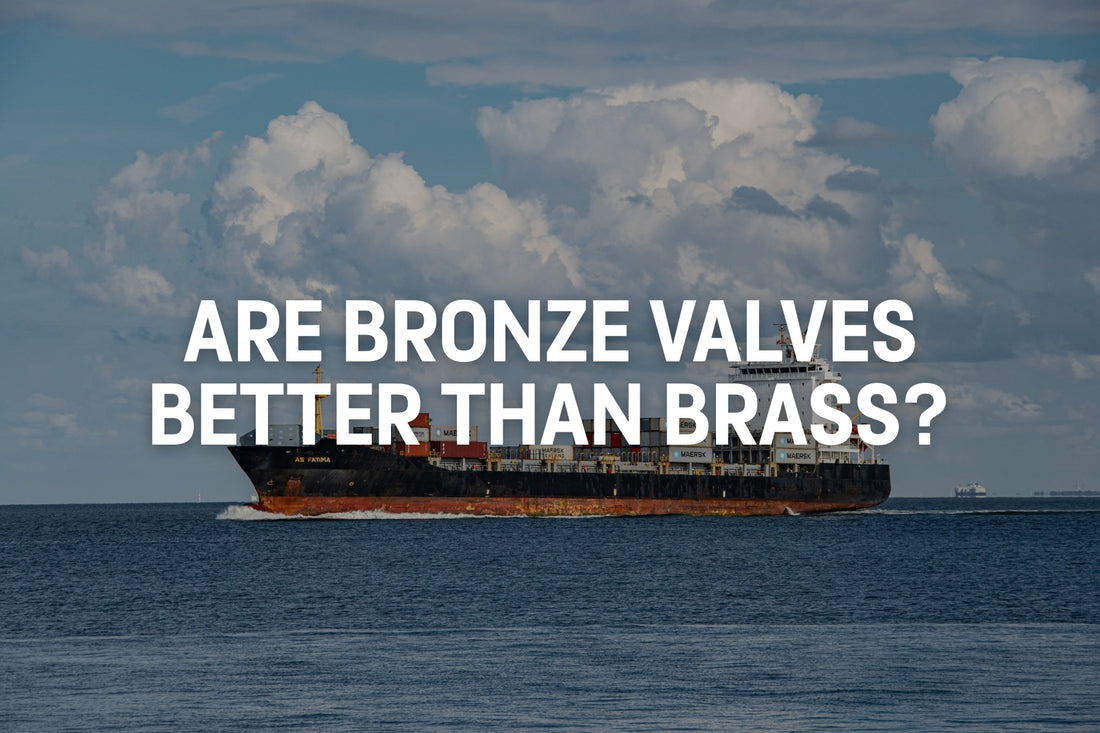
Are Bronze Valves Better Than Brass?
When choosing valves for industrial, marine, or plumbing applications, one of the most common questions is: Are bronze valves better than brass? While both materials have been trusted for decades in fluid control systems, the choice between the two depends on the environment, pressure requirements, and longevity needed.
At BronzeValve.co.uk, we supply a range of bronze valves that are specifically engineered for demanding conditions — including shipbuilding, steam systems, and offshore environments — where reliability and corrosion resistance are crucial. To help you decide which material best fits your needs, let’s explore the key differences between bronze and brass valves.
Understanding the Difference Between Bronze and Brass
Both bronze and brass are copper-based alloys, but their compositions differ significantly:
Bronze is typically made from copper and tin, with small additions of other elements like phosphorus or nickel for strength and corrosion resistance.
Brass, on the other hand, is composed of copper and zinc, which gives it a softer and more malleable structure.
This difference in composition greatly affects how each material performs under pressure, heat, and exposure to harsh environments — key considerations for valve applications.

Why Bronze Valves Are Better for Demanding Environments
Bronze valves are generally considered superior to brass valves in tough industrial and marine applications. The tin content in bronze gives it outstanding resistance to corrosion, particularly from saltwater and chemicals. This makes bronze the preferred choice for shipbuilding, offshore oil platforms, and steam systems.
In contrast, brass valves are more suited to residential or light-duty use, such as in heating, plumbing, and general water systems, where corrosion is less aggressive.
Key Advantages of Bronze Valves:
Superior corrosion resistance in saltwater and marine conditions
Higher strength and durability under high pressure and temperature
Reduced risk of dezincification, a common issue in brass valves exposed to water
Longer operational life, even in harsh or outdoor settings
Better performance in steam, fuel, and industrial applications
At Bronze Valve, our range of bronze valves is designed for maximum reliability in environments where brass simply cannot perform as effectively.
When Brass Valves May Be Suitable
While bronze valves outperform brass in most industrial applications, brass valves can still be the right choice for low-cost, low-pressure systems where the fluid is non-corrosive. Examples include domestic plumbing, air, or freshwater installations.
Brass is easier to machine and less expensive, which makes it an attractive choice for small-scale systems — but for long-term performance, especially in marine or high-temperature applications, bronze is the clear winner.

Bronze vs. Brass Valves in Marine & Industrial Use
In marine environments, exposure to seawater can quickly degrade brass due to a process known as dezincification, where zinc leaches out of the alloy, leaving the valve weak and porous. Bronze, by contrast, resists this reaction, maintaining its structure and sealing performance over time.
That’s why industries such as shipbuilding, steam control, and chemical processing almost always specify bronze valves for critical operations. Whether it’s a bronze ball valve, globe valve, or check valve, these components provide unmatched dependability in corrosive conditions.
Conclusion
So, are bronze valves better than brass?
Yes — especially when it comes to performance, durability, and corrosion resistance. While brass may work for domestic or light-duty systems, bronze valves are the superior choice for marine, steam, and industrial environments where reliability is non-negotiable.
At BronzeValve.co.uk, we supply a wide range of high-quality bronze valves suitable for all types of demanding applications. Whether you’re working on a shipbuilding project, offshore installation, or industrial plant, our valves deliver long-lasting performance where it matters most.
FAQs
1. Are bronze valves more expensive than brass valves?
Yes, bronze valves typically cost more due to their higher tin content and superior corrosion resistance, but they offer far greater durability and lifespan.
2. Can I use brass valves in saltwater systems?
No. Brass valves are not suitable for saltwater applications because they can corrode and weaken over time through dezincification.
3. Why do shipbuilders prefer bronze valves?
Shipbuilders choose bronze valves because of their proven resistance to saltwater, vibration, and high pressures commonly found in marine environments.
4. Are bronze valves safe for potable water?
Yes, most bronze valves are lead-free and certified for use in potable water systems. Always confirm compliance with local standards.
5. Do bronze valves require more maintenance than brass valves?
No. In fact, bronze valves often require less maintenance because they are more resistant to corrosion and material wear, especially in harsh conditions.

